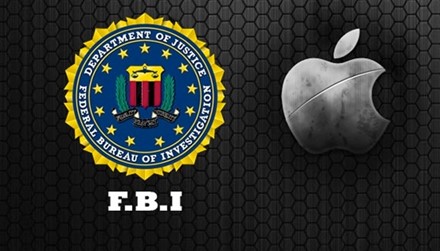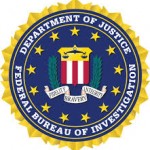Apple Lambasts The FBI For Not Asking The Nsa To Help Hack That Iphone

IN THE SHOWDOWN between Apple and the Justice Department over an iPhone used by one of the San Bernardino shooting suspects, one question has loomed large. Why hasn’t the FBI sought assistance from the National Security Agency—which employs some of the nation’s top hackers—to crack into the iPhone? Apple has touched on that question lightly in other briefs filed in the case, but today it focused on it more extensively in its latest brief submitted to the court.
“The government does not deny that there may be other agencies in the government that could assist it in unlocking the phone and accessing its data; rather, it claims, without support, that it has no obligation to consult other agencies,” Apple wrote, noting that FBI Director James Comey danced around the question of NSA assistance when asked about it during a recent congressional hearing.
And if the FBI can’t on its own break into iPhones without NSA help, it should invest in developing that capability, Apple says, instead of seeking unconstitutional ways to force tech companies to assist it.
“Defining the scope of the All Writs Act as inversely proportional to the capabilities of the FBI removes any incentive for it to innovate and develop more robust forensic capabilities,” Apple wrote. The company quotes Susan Landau, a professor of cybersecurity policy at Worcester Polytechnic Institute, who has said that “[r]ather than asking industry to weaken protections, law enforcement must instead develop a capability for conducting sophisticated investigations themselves.”
The Government Is Misinterpreting the All Writs Act
Apple’s latest brief—the last to be filed before the two sides meet in court next week for oral arguments—focuses on refuting much of the government’s claims around the All Writs Act, the 200-year-old statute the government has said gives it authority to compel the tech company to assist it in unlocking the iPhone.
Federal Magistrate Judge Sheri Pym issued an order last month requiring Apple to create a special software tool that would eliminate specific security protections the company built into its phone software. The tool would help the FBI crack the password on the iPhone and thereby decrypt data stored on the device.
But Apple filed a motion to vacate the order, saying it’sunconstitutional on several grounds and violates the separation of powers doctrine in that it would give the court and government authority that Congress never granted them and usurp Congress’s “exclusive constitutional authority to make laws.”
The government has cited US v New York Telephone Company as one of the primary precedent-setting cases that give it authority under the All Writs Act. In that case, the government required New York Telephone company to provide technical assistance to record numbers dialed from a phone in what is known as a pen-register. New York Telephone objected, saying the pen-register statute didn’t require companies to provide technical assistance. The Supreme Court ultimately ruled that the phone company could be compelled to assist because it was already collecting this information as a matter of course for its own business purposes, in order to bill customers, detect fraud and conduct troubleshooting. As long as the assistance being sought was not unduly burdensome to the company, it could be compelled to assist.
Apple says the All Writs Act doesn’t grant the different authority the government is seeking in this case, and that the government is attempting “to rewrite history by portraying the Act as an all-powerful magic wand rather than the limited procedural tool it is.”
The government “portrays the All Writs Act as a ‘broad,’ ‘venerable,’ ‘fluid,’ ‘adaptable’ font of virtually unlimited authority empowering courts to issue any and all orders that the government requests in the pursuit of ‘justice’,” Apple writes. “This is an exercise in wishful thinking, not statutory interpretation.”
The All Writs Act is supposed to be a limited procedure statute, but under the government’s interpretation of it, courts can order private parties to do virtually anything “short of kidnapping or breaking an express law,” Apple writes. “The Founders would be appalled.”
This Is an Issue Only Congress Can Decide
The All Writs Act, Apple says, is meant to allow courts to issue orders to carry out congressional intent where its clear that Congress wanted the courts to have a certain power but didn’t spell out the procedural steps for executing that power. But Apple says there is no evidence that Congress ever intended to force companies to decrypt data or write software that they view as dangerous to assist the government in decrypting data. Instead, there is evidence that Congress intended the contrary.
In the Communications Assistance for Law Enforcement Act, a law passed in 1994 that defines the circumstances under which telecoms must assist law enforcement in conducting electronic surveillance through wiretaps, Congress specifically opted not to give the government power to order a company to help decrypt data if the company does not possess the decryption key. CALEA also does not prohibit a company from employing an encryption scheme for which it does not retain the ability to decrypt communications.
“[U]nder CALEA,” Apple notes, the company “cannot be required to ‘ensure the government’s ability’ to decrypt or to create decryption programs the company does not already ‘possess’.”
More recently, lawmakers on Capitol Hill have signaled their continuing opposition to forced decryption. Senator Ron Wyden (D-Oregon) introduced legislation in 2014 that wouldprohibit the government from compelling companies like Apple to install backdoors in encrypted systems that would allow the government to decrypt protected communications.
The Justice Department has said that the Supreme Court emphasized in other cases that meaningful conclusions cannot be drawn from Congress’s silence on particular matters. But Apple responded in its brief today that although “silence is sometimes a weak indicator of intent, it is a different story when Congress actively considers legislation to address a major policy issue, yet deliberately declines to enact it.”
Apple also says that CALEA’s prohibition on forcing a company to help decrypt data for which it does not hold a key is “neither ‘hypothetical nor abstract’” and makes Congress’s intentions clear.
“The Justice Department and FBI are seeking an order from this Court that would force Apple to create exactly the kind of operating system that Congress has thus far refused to require,” Apple wrote. “They are asking this Court to resolve a policy and political issue that is dividing various agencies of the Executive Branch as well as Congress. This Court should reject that request, because the All Writs Act does not authorize such relief, and the Constitution forbids it.”
Apple made a plea for the court not to ignore the public debate around the issue. “[T]he Justice Department and FBI argue that this Court must decide the issue in a vacuum, without regard to either the swirling national debate about mandating a back door or the dangers to the security and privacy of millions of citizens posed by the relief they seek on behalf of the United States. But to determine whether this is an issue capable of judicial resolution under the All Writs Act and the Constitution, the Court not only can consider this broader context, it must do so.”
The Government Is Misinterpreting Past Precedents
Apple lawyers said in a phone call with reporters today that the government has misinterpreted a number of court cases it has cited to support its position. All of the prior court cases the government has cited as precedent are “light years away” from the facts in this case and don’t apply to it, they said.
One precedent the government cited was the 1807 case of United States v. Burr, in which Chief Justice Marshall held that a clerk working for former Vice President Aaron Burr could be forced to decipher a coded letter of Burr’s, “provided that doing so would not incriminate the clerk.” Apple said in its brief today that the Burr case has nothing to do with the All Writs Act, nothing to do with software, and nothing to do with decrypting data. The question posed to Burr was whether he understood the cipher used to encrypt the data; the court ruled that answering that question alone would not incriminate him.
Apple Says It Has No Special Relationship With China
Last week in a separate brief filed with the court, the government accused Apple of deliberately raising technological barriers that prevent it from assisting authorities with a lawful warrant and of doing this to better market its products.
Apple’s lawyers shot back at this today, saying it has never marketed its security as something that would prevent law enforcement from obtaining data from its phones.
Apple also took issue with suggestions the government made in its filing that the tech giant is in some kind of collusion with the Chinese government in storing the data of Chinese users in that country. The government implied that Apple might be providing the Chinese government with access to data that it won’t give the US government. The government provided no information to support this.
Apple called the government’s attacks an act of “desperation” and said that it stores the iCloud data of Chinese customers on servers in China, but the data is encrypted and the key to decrypt it is held in the US. Apple said that it has provided no more assistance to the Chinese government than it has supplied to the US.
A hearing has been scheduled for March 22 to provide the judge with oral arguments in the case.
Source: Wired




























